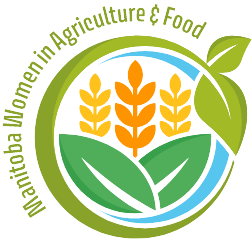by Angela Lovell

Image: Annie Spratt on Unsplash
When it comes to a family farm or business, we have all heard the phrase that ‘fair isn’t necessarily equal’. It’s often applied to the farm transition process and the distribution of farm and family assets, but it’s equally applicable to the day-to-day operations of any farm or business, to the family situation of the people involved, and to the distribution of household and child-rearing responsibilities within those family structures.
Equity is achieved through assigning value. Not every job or task that is done in society is compensated in the same way. Some jobs require more education, skills or experience than others and that is reflected in the salary level. Where the problem comes is when someone doing exactly the same job, with exactly the same qualifications, experience and efficiency is paid less because of a factor that is blatantly discriminatory – for example because they are a woman, have a disability, or are from an underrepresented group.
On a busy farm there are so many different tasks and areas of responsibility that it’s impossible to even think that one is equal to another. There is a lot of specialized knowledge and experience required to run a farm, whether it’s knowing how to operate farm machinery properly and safely, managing the financials, employees, marketing or ensuring that all the production needs are met. Most of these jobs are compensated monetarily.
Then there are the less visible tasks that need to be done for the farm to function and be successful, a lot of which inherently fall to women; picking up the parts from the local ag dealer, making sure everyone is nourished every day, taking the kids to school or daycare, or being a full-time caregiver for pre-school children or elderly relatives.
According to a report from the OECD, women around the world spend two to ten times more time on unpaid care work than men. Adding that ‘tackling entrenched gender norms and stereotypes is a first step in redistributing responsibilities for care and housework between women and men.’
These tasks, though not generally compensated with money, do need to be compensated with the recognition that they provide as much value to the farm or a family business as the paid jobs do.
So, how do you value the unpaid labour that women and other family members contribute to the both the business and the household? It starts with identifying those tasks by making a list of them.
“You might have a list of chores that need to be done and be explicit about who is doing what,” says Dr. Sonia K. Kang, Associate Professor of Organizational Behaviour and HR Management at the Department of Management, University of Toronto. “When it’s not explicitly assigned, the home-related tasks are much more likely to fall to women, without any recognition. The list allows you to not only identify tasks, but to place value on them.”
Once tasks have a value, then it’s about giving priority to those that are the most important. Although it’s tempting to assign those roles according to tradition or stereotypes because it’s easier, doing that will hamper everyone’s ability to find the roles that they are best suited for and provide a better return for the business and the harmony of the household.
“It might be the case that men enjoy the tasks that women have been doing,” Kang says. “Because it’s not been seen as something that they should be doing, they have never tried them, so they don’t know if they’re good at them. If you take some of that away, and everyone is expected to do all those things, then hopefully everyone develops the skills that allow them to do that job.”
This post is adapted from the Country Guide article: The Equitable Farm.
Watch out for our next blog post: Women need to learn how to ‘drop the ball’ rather than trying to do it all.
Check out our last blog post in this series: Challenging gendered role stereotypes




